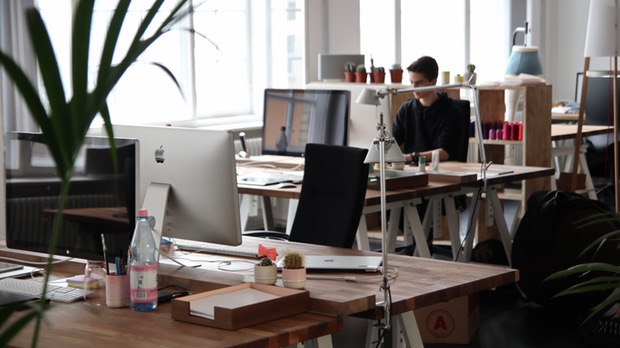8 Ways the Workplace and Workday Are Different Due to Covid-19

If you kept your job throughout the pandemic thus far, you probably experienced a few changes to the way things work. Those seeking new employment should also anticipate a change in the traditional workplace model. Since the novel coronavirus shows few signs of leaving humanity alone, consider many of these shifts permanent.
How will the workplace change after COVID-19? Here are eight ways the pandemic is changing work.
A Move Toward Telecommuting
The most drastic change involves the shift to telecommuting. While businesses previously considered such working arrangements a perk to attract talent, they must comply with social distancing guidelines. Working from home enables them to keep their doors open without squeezing multiple employees into cubicles.
This arrangement has substantial benefits for workers and employers alike. A study by Global Analytics indicates that teleworkers are 20% to 25% more productive than those in traditional office spaces. Even the planet gets a boost in the form of fewer carbon emissions from commuter vehicles.
Communication Systems Upgrades
When you see your colleagues in the office daily, you take for granted that you can ask your accounting friend a payroll question by strolling over to her desk. COVID-19 is changing the workplace by forcing businesses to upgrade their communications processes. One organization discovered its phone tree was only 50% accurate — imagine the headaches it faced when trying to coordinate with distant staff members.
If you recently began teleworking, touch base with your supervisor on how they prefer you to communicate. Some organizations use software like Slack, while others use text and phone, and still more employ a combination of methods.

Increased Security and Employee Monitoring
Some companies issue computers and phones to remote workers, but many allow staff to use their personal devices. Either way, your employer can monitor what you do remotely with or without your express consent. If you waste hours scrolling social media or online window shopping, your boss will probably catch you.
This changing workplace oversight due to COVID-19 isn’t necessarily meant to be punitive. Because of the threat of cybercrime, organizations need to take increased security measures to safeguard proprietary data and personal client information. Your boss may require you to install anti-malware software and monitor your web traffic to decrease potential liability.
More Schedule Flexibility
Many pundits giving pandemic advice take guidance from people with cushioning — which leaves many working parents frustrated and exhausted. Fortunately, many organizations understand that it’s challenging to homeschool children while working a nine-to-five. As school reopenings remain a matter of some conjecture, expect flexible schedules to begin outpacing the traditional workday model for pragmatic reasons.
Benefits Become More Vital
In recent years, many businesses have moved away from providing employee benefits packages. However, in the wake of COVID-19, firms that hope to attract talent will need to expand these offerings. People who formerly didn’t think twice about going without health insurance for a salary bump now understand the consequences of doing so.

A Reduction in Business Travel
When it comes to how the workplace will change after COVID-19, you can anticipate less mandatory business travel. As desperately as many folks need a getaway, few relish the thought of boarding a plane. If you adored your quarterly jaunts, you might feel dismayed. However, if you resented the hassle, you’ll likely endure less of it going forward.
A Shift in Departmental Duties
Nearly half of all U.S. employers reported considering downsizing as the pandemic began. As a result, you might find yourself with increased duties on your plate. If you previously handled a customer chat line, you may need to provide phone support. Your company may restructure your department or transfer you to a different position to fill an urgent need.
More Contact-Free Options
Contact-free delivery isn’t only for Door Dashers anymore. One of the ways COVID-19 is changing work involves organizations overhauling their receiving centers to allow for less frequent contact between suppliers and staff.
Likewise, if your organization takes point-of-sale (POS) payments, you may no longer need to accept cash much longer. Many companies request customers to use debit or credit cards, and technologies like Apple Pay will further reduce the need for touching pin pads.
The Pandemic Is Changing the Workplace in Many Ways
How will COVID-19 continue to change the workplace? As time progresses, expect further innovations to protect health. In the meantime, expect to see these common workplace shifts.
This guest post was authored by Alyssa Abel
Alyssa Abel is a college and career writer who offers advice on strategies to success. Read more of her work on her blog, Syllabusy.

